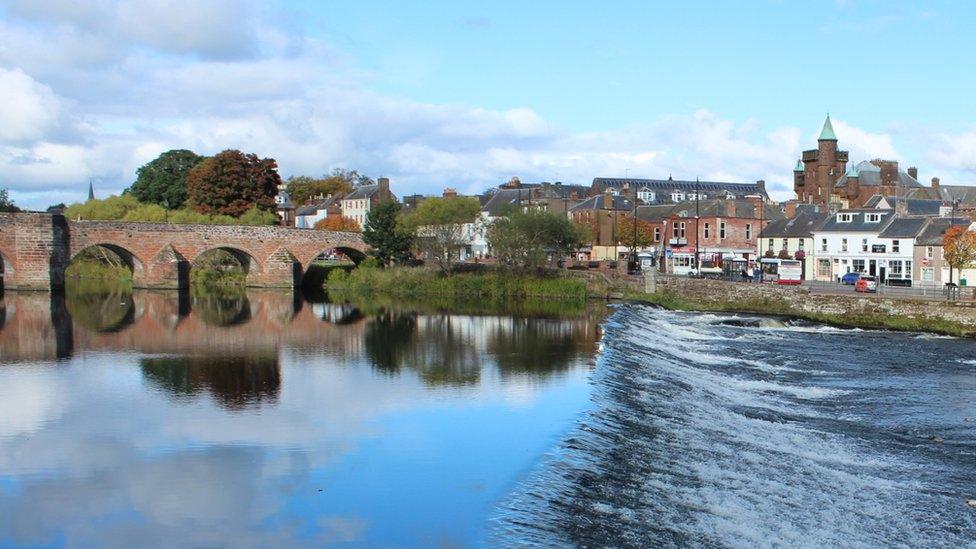Queen's Platinum Jubilee: Eight parts of Scotland seek city status
- Published
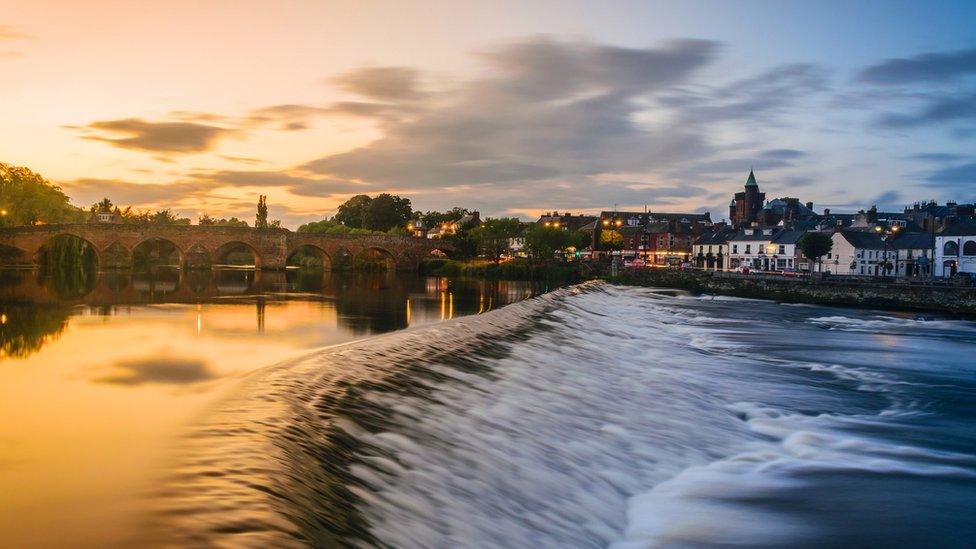
Dumfries is one of eight Scottish contenders for city status in 2022
Eight different parts of Scotland are in the running to be granted city status in 2022.
They have entered the competition which has been organised to mark the Queen's Platinum Jubilee.
Dumfries, Dunfermline, Elgin, Greenock, Livingston, Oban, St Andrews and South Ayrshire have all submitted bids.
The final decision will be taken in spring 2022 and the successful locations are expected to be announced shortly afterwards.

In total 39 places across the UK and British Overseas Territories have put in applications.
In previous similar competitions, Scotland has been granted one new city with Perth successful in 2012 and Stirling in 2002.
As part of their bids, applicants were asked to talk about the distinct identity and community which they feel means their area deserves to become a city, as well as evidence of links to royalty.
Scotland currently has seven cities - Aberdeen, Dundee, Edinburgh, Glasgow, Inverness, Perth and Stirling.
A dozen current cities have also submitted bids to secure Lord Provost or Lord Mayor status.
In Scotland, both Inverness and Perth have entered that competition.
The contenders
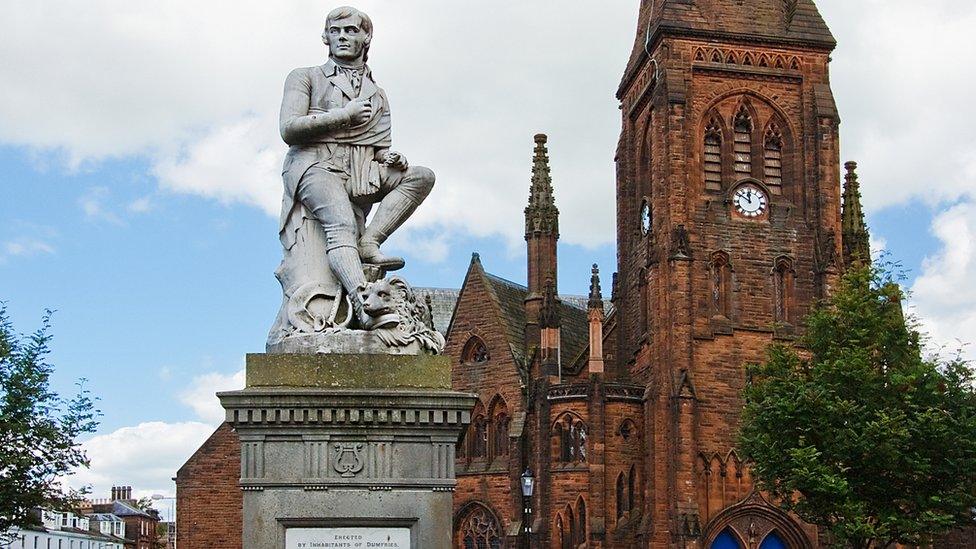
Dumfries has bid for city status before
Dumfries has entered the competition twice before - it was unsuccessful in 2001 while a decade later its bid was ruled out after it emerged it had not come from the local council.
This time around it has the support of the local authority.
The town's provost has described entering the competition as a "no-brainer" with the benefits it could bring.
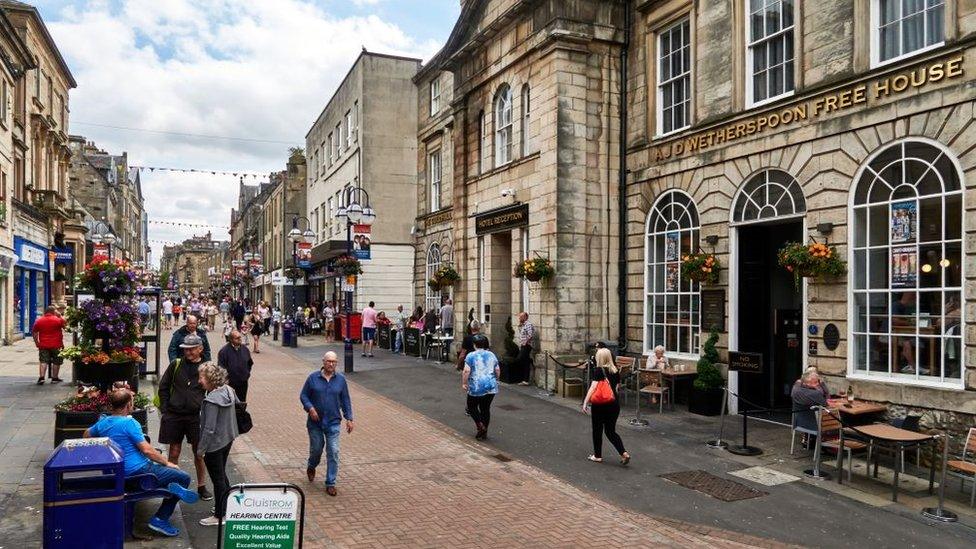
Dunfermline is one of two towns Fife Council is backing in the competition
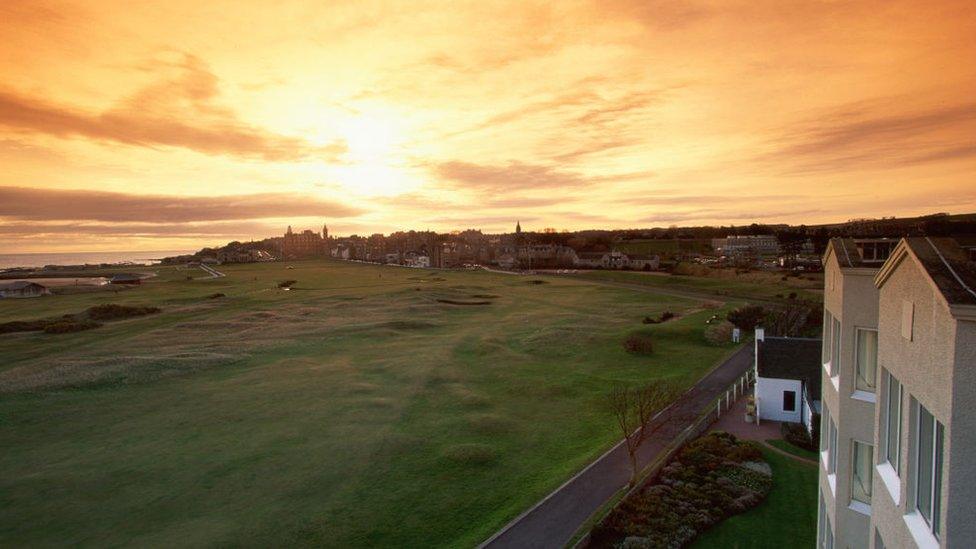
St Andrews is known worldwide as the "home of golf"
Fife Council is supporting two city bids in its area - one of them for Dunfermline and the other for St Andrews.
It said they were keen to see their "heritage recognised and their historical status officially restored".
Dunfermline has been called a "strong contender" as the "ancient capital of Scotland" and "one of the fastest growing towns in Europe".
St Andrews, for its part, is "known worldwide as the home of golf and Scotland's first university" and also, historically, enjoyed city status.
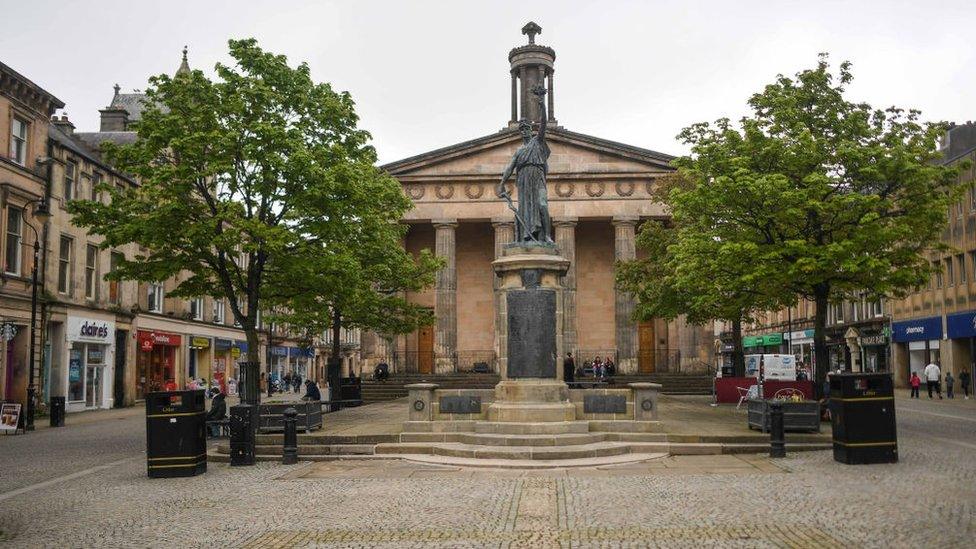
Elgin is the most northerly of the Scottish city contenders
Elgin confirmed its interest in the competition earlier this year.
Alastair Kennedy, chairman of its community council, said it was an opportunity that was "too good to miss" and it was time to end "decades of debate".
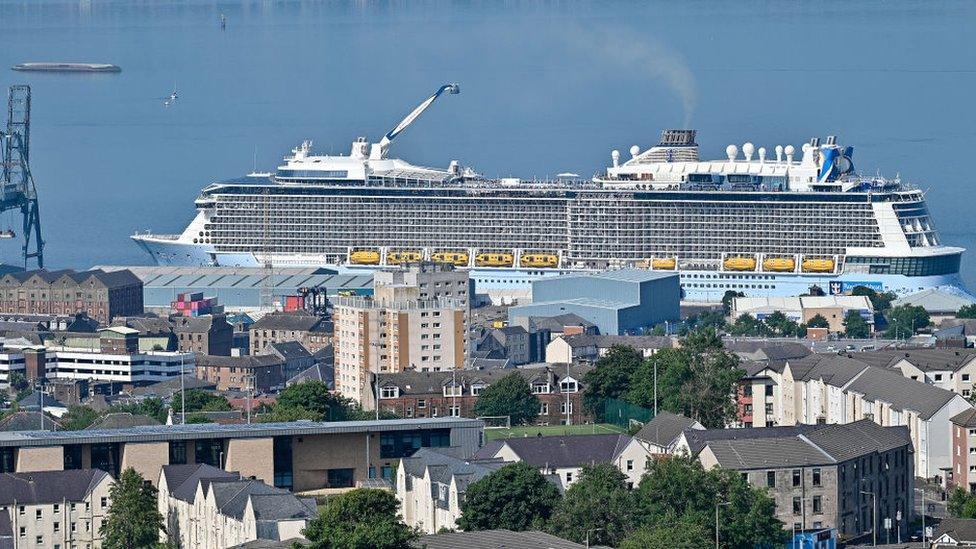
The application is seen as helping to raise Greenock's profile
Inverclyde Council unanimously supported an application for Greenock to take its place in the competition.
It said it could "only help raise the profile" of the town and the wider area.
Council leader Stephen McCabe said he knew there were "mixed feelings" about the bid due to the financial implications but stressed there were no "direct costs" involved.
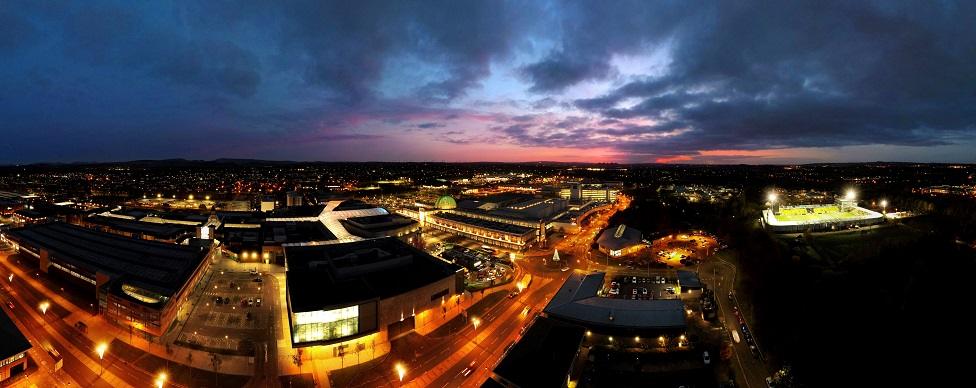
Livingston has grown significantly in size over the last 60 years
West Lothian's largest town, Livingston, has also thrown its hat in the ring.
It hopes to complete a journey from being "three small villages with just 60 households" in 1962 to a "successful regional centre" over the last six decades.
It has also highlighted a population of more than 57,000 which it said was set to grow to 100,000 in years to come.
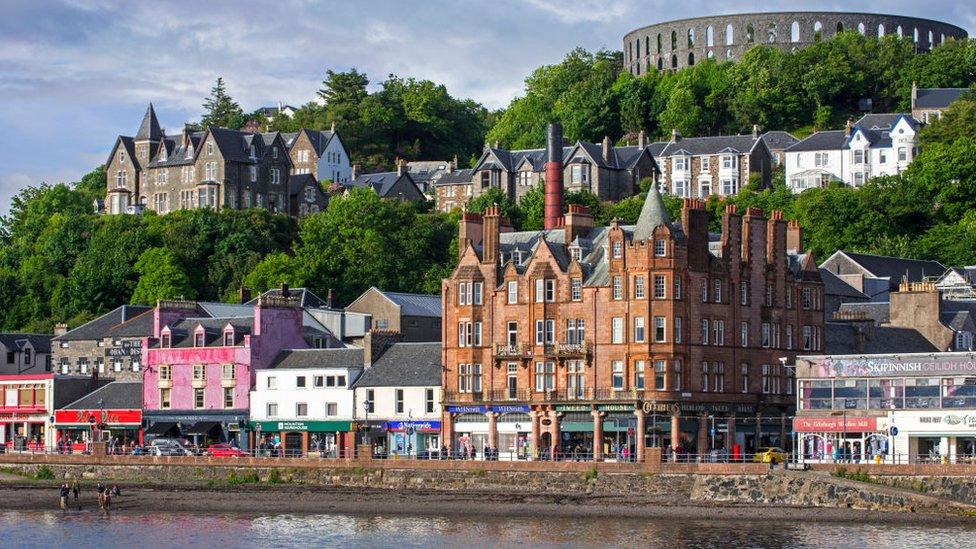
Oban has been described as a "cradle of the Gaelic language"
The bid from Oban aims to create "opportunities for growth" in Argyll and Bute.
Among the reasons it has cited is its "strategically important position on the west coast of the Highlands and Islands region".
It has also been described as an area "rich in culture and heritage" as well as the "cradle of the Gaelic language".
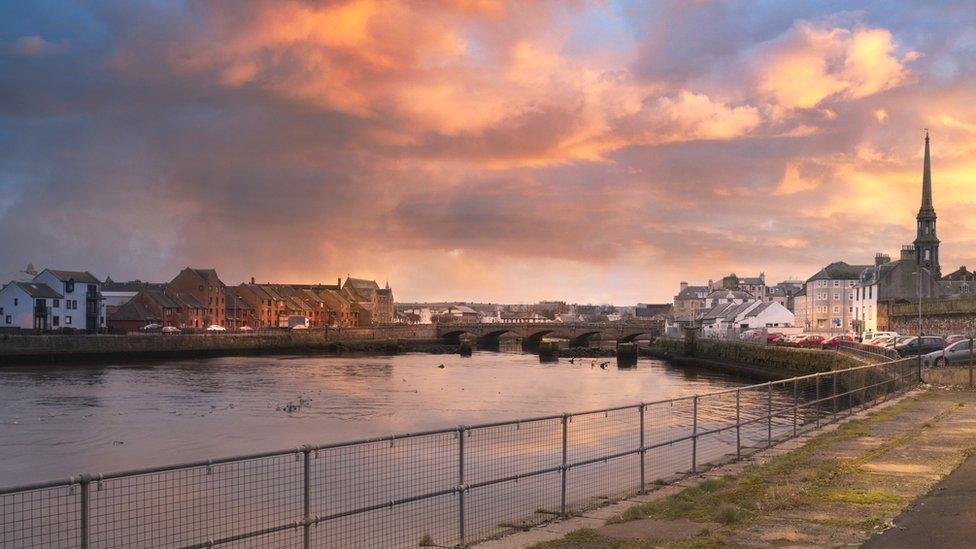
The whole of South Ayrshire is hoping to secure the status
The final competitor is not a town but rather the whole of South Ayrshire.
The region includes Ayr, Prestwick, Troon and Turnberry.
It has highlighted its "rich history and heritage, fantastic community spirit, welcoming people, thriving voluntary sector, beautiful scenery, and strong ambitions for an economic and sustainable future".
Like many others involved, it hopes that securing the "rare honour" could put it "well and truly on the map".
- Published23 September 2021
